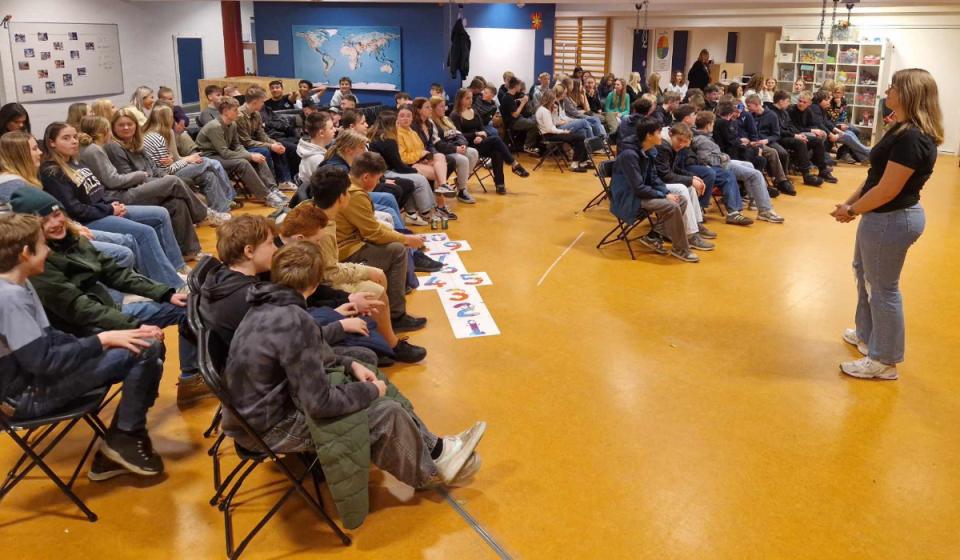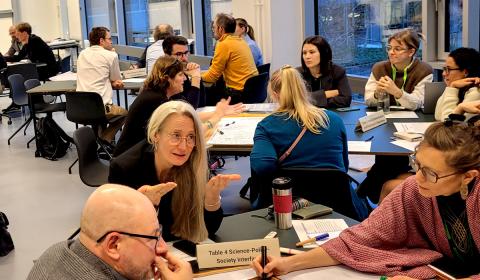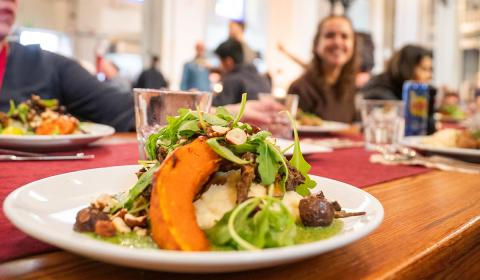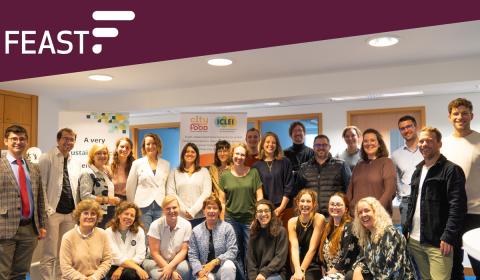
Image source: Carina Bell Woollhead
Denmark has recently taken a significant step forward in its approach to school meals. The first comprehensive school food program, EAT, was started in August 2009 and has since been greatly expanded and complemented with other programs in and around the capital Copenhagen, and a few of the other largest cities in Denmark.1
However, on November 22, 2024, the Danish government, supported by the Socialist People's Party and the Social Liberal Party, allocated DKK 854 million in the Danish Finance Act to fund a national pilot scheme for school meals that will expand to all parts of the country. This program will run from 2025 to 2028.2
The initiative is supported by the School Meals Coalition (Skolemad Til Alle), a cross-sector group comprising over 50 national and international food actors, including agricultural organizations, educational institutions, public authorities, trade unions, producers, industry associations, private companies, and interest groups3. The coalition’s goal is to provide equal access to healthy, sustainable, and nutritious meals for all primary school children, improving their learning, well-being, and health.
A national advisory team has also been established under the Ministry of Food, Agriculture, and Fisheries through the knowledge institution Madkulturen4. This team assists municipalities and schools across Den-mark in developing and implementing local school meal programs.
The Context of Guldborgsund Municipality
Completely aligned with the national focus on school meals, Guldborgsund Municipality, located in the southernmost part of Denmark, has embarked on a pioneering initiative to support the health and well-being of its children and youth.
Guldborgsund Municipality covers the islands of Falster and a third of the island of Lolland, an area well-known for its fertile agricultural land and farming. The municipality, with a population of about 60,000, is home to large-scale farms primarily focused on barley, wheat, and sugar beet production. The region is also renowned for its fruit production, which has been in decline over the last 20 years. Nykøbing Falster, the municipality's largest town, has a population of around 20,000. The municipality is home to 13 public schools and 4 private schools.
Guldborgsund Municipality faces significant health challenges, with high rates of obesity, smoking, and lifestyle-related diseases compared to other municipalities in Region Zealand and nationally5. Health surveys, including Region Zealand’s Health Profile and the annual Youth Life Survey6, highlight trends such as unhealthy eating habits, poor mental well-being, and declining physical activity. The municipality recognizes that childhood habits significantly influence adult health, making prevention a key strategic priority for improving public health in the long term.
The Role of the FEAST Project in Promoting Health and Sustainability in Guldborgsund
To further its aim of supporting the current and future health of Guldborgsund’s children and young people, the municipality decided to join the FEAST project in 2022. FEAST is a Horizon Europe-funded project that aims to explore how healthy and sustainable meals can support better health, and well-being, and foster a greater understanding of food production and meal preparation among local children and young people. The overall aim of FEAST aligns closely with the Municipal Council's efforts to promote food literacy among children and adolescents.
In FEAST, Guldborgsund Municipality is participating as a Living Lab7 whose aim is to improve dietary habits among children and young people, ultimately supporting food literacy and better overall health and well-being. The municipality's role as a public catalyst for healthier, more sustainable eating habits is central to the Living Lab activities.
To date, the Guldborgsund Living Lab has gained valuable insights into existing school food programs in Europe and the Nordic countries. In partnership with The Union Kitchen in Sakskøbing8 (Sakskøbing Fælleskøkken), a publicly owned kitchen that serves approximately 2,500 citizens in the elderly and care sectors of Lolland-Falster, the municipality has explored the capacity and opportunities for implementing a school meal system. This has resulted in the design of trials beginning with selected schools in August 2025 that will provide essential data on the effectiveness of local school meal initiatives.
The city council has also allocated DKK 3.3 million to fund a three-year pilot project in collaboration with Sakskøbing Food School (Sakskøbing Madskole)9. The project offers 4-hour cookery courses to all school children in grades 5-9 across the municipality. These courses, titled “Wild about Food,” will continue until 2026, with the impact of the initiative to be evaluated in the course of 2025. This initiative significantly enhances the current home economics curriculum and reflects the municipality's prioritization of food literacy and improved cooking skills for young people.
In conclusion, the work underway in Guldborgsund Municipality exemplifies a proactive approach to addressing public health challenges through improved nutrition and food education. As the national pilot project unfolds, it will be essential to monitor and evaluate its effects on students, teachers, parents, and the wider community, with the aim of expanding these efforts to more schools in the future. The Guldborgsund Living Lab plans to closely monitor the pilot trials and hopefully expand the school-based food initiatives throughout the municipality as well as provide insights and experience to other municipalities who face similar challenges over the coming years.
References
1 Agger, Anne-Birgitte. June 2013, Skolemadssatsningen i KHB: EAT 2007-2012, Copenhagen: Københavns Madhus. Url: 5c55d3fe7229b8322fa84ec0_Skolemadssatsningen 2013 KBH MH.pdf
2 Ministry of Children and Education, November 22, 2024
3 The National Dairy Association, November 21, 2024
4 Madkulturen. November 2024, Denmark: Ministry of Agriculture, Food and Fisheries: https://www.madkulturen.dk/
5 Region Zealand: The Regional Health Profile 2021, pp: 107 – 131. Url: https://www.regionsjaelland.dk/fagfolk/sundhedsprofilen/sundhedsprofilen-2021
6 The BørnUngeliv Association: https://www.boernungeliv.dk/Public/Unge/Undersoegelser.aspx
7 I.e. Collaborations between multiple actors that operate and undertake experiments on several sites at regional or sub-regional level. For more information on the Living Labs in FEAST, see: https://feast2030.eu/livinglabs-overview.
8 https://www.faelleskoekkenet.dk/
9 Guldborgsund Municipality, Economic Council Meeting, March 13, 2023, Case 63: Resolution: Teaching Program at Sakskøbing Madhus and Madskole.


